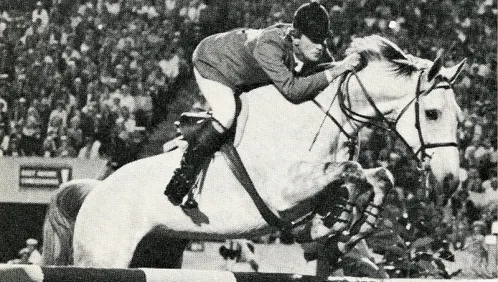The U.S. Equestrian Federation has removed “problematic clips that were not aligned with our values” from archived video of a gymnastics clinic conducted by U.S. show jumping team veteran Katie Prudent, a spokeswoman for the federation said this week.
The action was in response to complaints the USEF received after a 2.5-minute video compilation of soundbites from Prudent’s lessons during recent USEF Horsemastership Training Series clinic went viral.
Prudent taught two gymnastics sessions on Saturday, Jan. 6, as the middle day of the three-day, invitation-only experience for 11 young riders. Her sessions were livestreamed that day on USEF Network for all USEF members to watch, then archived and available for premium members of ClipMyHorse.TV, USEF’s video partner, afterward. About a week after the video went up, a compilation reel started being shared on social media.

USEF spokeswoman Vicki Lowell said the federation did not receive complaints about the lesson from any of the riders involved, their families or regular trainers, but did “receive reports of concerns from members.”
“All the reports submitted are going through the standard USEF review process,” Lowell wrote in an email. “We are evaluating the matter and will determine what action is appropriate.”
In the meantime, archived video of the session was briefly taken offline and certain moments removed.
The compilation video, which has now been viewed more than 300,000 times from one heavily shared Facebook post alone, includes a collection of soundbites from Prudent, edited together from the first 1.5-hour session.
In some places, the editing omits context or parts of sentences.
ADVERTISEMENT
“I don’t want to look over and see you being jerked forward like you’re a little weakling,” the compilation shows Prudent telling one rider, cutting away before she completes the sentence, “because you’re not. Stretch up, carry your hands; don’t let him tug you out of the saddle.”
In other places, complete sentences and thoughts are included. Among those that appear in the compilation but have been edited out of the archived session is a moment where Prudent talks to the students about using their crops:
“I have this thing with my stick, and I call it ‘smack and back,’ ” she told the group. “When a horse does a disobedience, the reason we have the stick is to use it correctly, and horses need it; they need it. All this, all this, you know, animal rights activists who know nothing about training horses, they need a good licking sometimes.”
Coincidentally, the compilation video gained wide distribution the same weekend that USEF hosted its annual meeting, where the main topic of discussion was “social license to operate,” or the idea that an activity such as competitive horseback riding needs a certain level of public acceptance to exist. When USEF Chief of Sport David O’Connor introduced the concept at the 2023 annual meeting, he explained it by using what he called “the Central Park Test”:
“Can we train with current practices in the middle of Central Park in New York City and defend your actions?” he asked participants at the 2023 meeting. “If not, those practices cannot happen.”
While equestrians online debate the appropriateness of the language and training techniques espoused by Prudent in her session—among the voices supporting her in the aftermath of the clip controversy are professional trainers related to the participating riders—Lowell acknowledged that the compilation clip doesn’t pass that theoretical test. She also noted that, separate to and predating the controversy over Prudent’s clinic, USEF is in the process of launching several new initiatives meant to improve coach education and help equestrian coaches learn the best techniques for effectively coaching and communicating with various age groups and rider populations across all USEF disciplines.
“This situation is an excellent example of how people differ in their opinions on training practices and how they are communicated to athletes,” she wrote. “However, regardless of opinion, whether you are a participant, trainer, or spectator, our practices, coaching, and training approaches must stand up to the ‘Central Park Test.’ We must all hold ourselves accountable for the safety and well-being of our athletes and equine partners. The sustainability of our sport and the powerful benefits created by the special bond between horses and humans require it. Anything less is not acceptable.”














